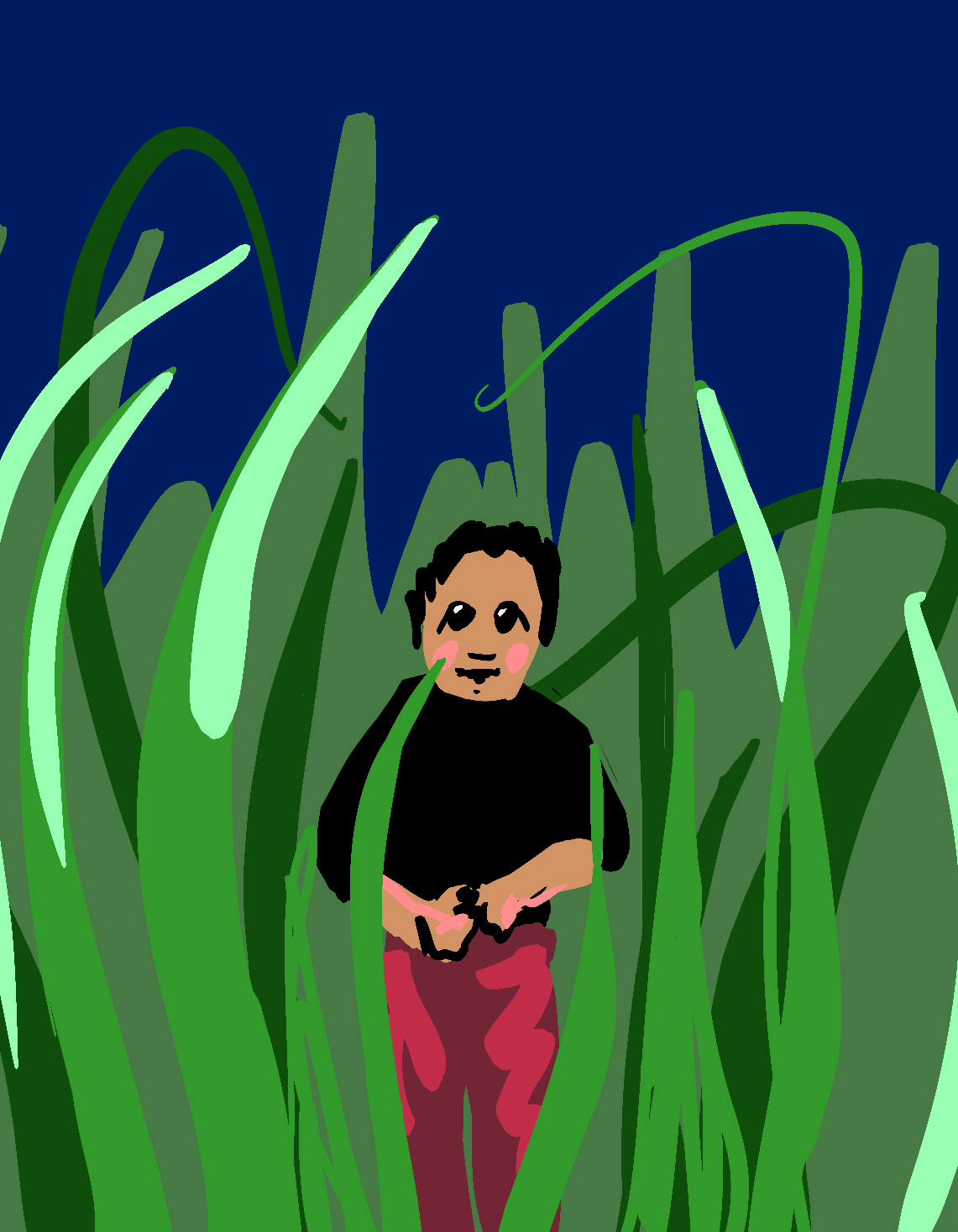
Lizzie Conklin
I love the idyllic beauty of childhood. The simplicity of its pleasures: wearing my mom’s shoes that were clearly far too big for me, going to the grocery store for lemons and nothing else, running through ferns twice my height. I was always amazed when the spring’s tender fiddleheads that I could crush in the palm of my hand unfurled summer’s heat into ferns taller than my dad.
They grew in my backyard among the ladybugs and lizards. During spring, I would pick the sweet fiddleheads that looked like the curled fist of a child, holding them in my own cupped hands and pretending they were coins. The currency of childhood. I suppose I thinned out the patch enough so that when the soft buds grew into monstrous ferns in the long days of summer sun, I could run through them freely. Despite my pruning, they still grew in thick groves that extended in every direction. Left, right, back, front, up, down. So tall they seemed something from the Cretaceous, more suited for dinosaurs to prowl through than a bright-eyed child.
Together, my friends and I would thrash through the verdant leaves, finding pleasure in pretending to be creatures of the wild. We found where the wild things were. The sticky undersides of the tendrils grabbed onto our clothes like fingers. Ensnaring us in their fresh green embrace, trying to hold us back as we ran. As we trampled. The smell of crushed greenery fills the underbelly of my memory.
I was astounded by the tall ferns. Amazed that a plant could be taller than me. The fronds grew up over my head like a tree canopy that brushed the hair on the top of my head. Filtering the bright sunlight into a bubble of green shade. At the time, I marveled at the world found under the ferns. A miraculously soft tree-less forest—a fairytale figment of my imagination. But I don’t know if it would amaze me anymore. The beautiful childlike ability to fill the most ordinary experience with adventure is like the age itself: ephemeral.
Eventually we grow out of the constant astonishment that comes from experiencing life for the first time. The wonderful childhood ability to romanticize the ordinary dissipates over time, the memory growing fragile with the years. I look back on those moments of my green repose, they are suspended in time like bugs in molasses. But when we stop living life for the first time, it speeds up. Somehow, the gaps between seconds grow shorter, yesterday becomes two years ago. It’s so easy to lose track of time as the blurriness of childhood hardens into the focused lines of adulthood. As you fall into prescribed routine: wake, up, down, class, eat, work, sleep. Life’s swift waters wash the indulgent luxury of time from our open hands, stopping for a mere moment before taking our valuable presentness with it.
But I know that in another ten years I’ll think back on my current joys. On the current objects of my easy delights that suspended me in time for a moment. The snow’s white blanket of silence descending on campus. Silhouettes in windows. 5 p.m. lighting. The romantic subjects of my simple joys are no longer forests of tall ferns, but the moments of repose in which I remember what it is like to experience life through a child’s constantly astonished eyes. Looking back on it now is like reliving it. It’s quite precious—as valuable as my pocketfuls of crushed fiddleheads. The currency of youth.







